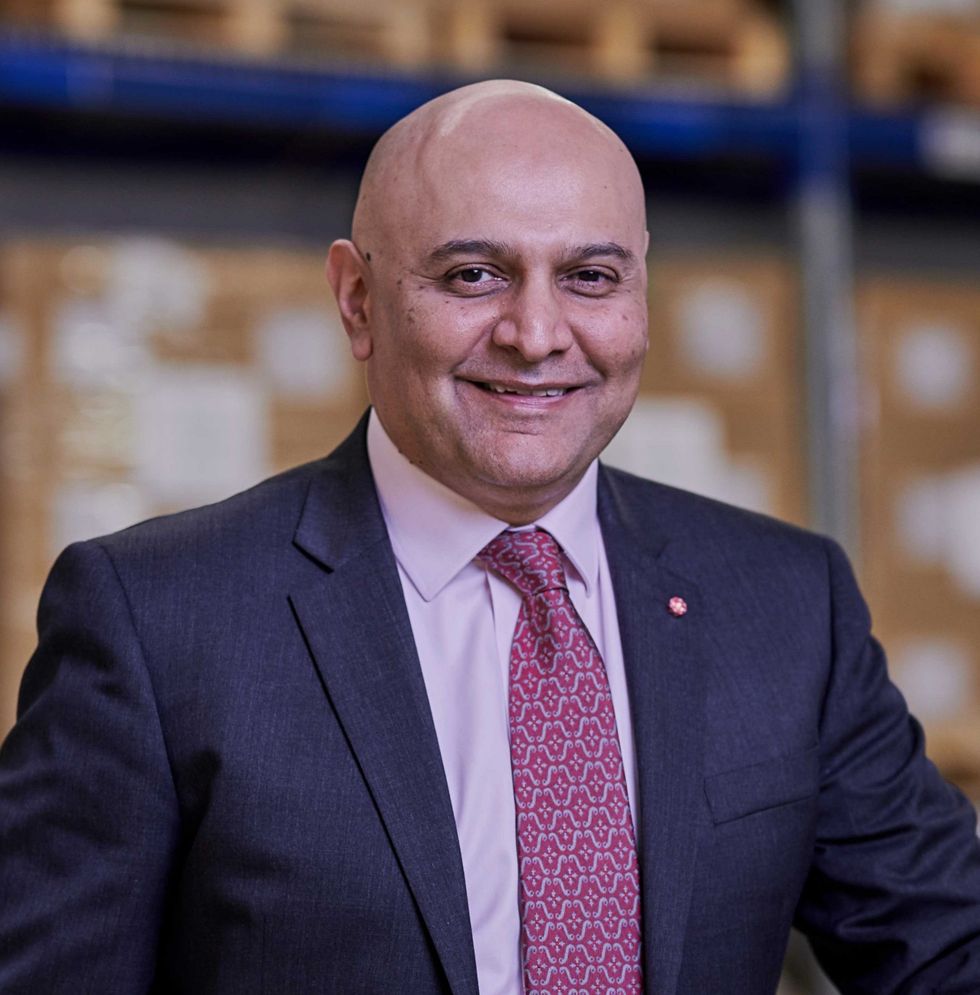THIS summer’s Olympics and Paralympics have showcased the very best of humanity under the most difficult of circumstances, but I’m not just talking about the exceptional performances of the athletes.
The Games have come to celebrate and symbolise all that is great about diversity and inclusion, where multiculturalism takes centre stage and wins gold.
As this summer’s Japan games have drawn to a close, I'm reminded that we now have less than a year to go until the next sporting extravaganza – the 2022 Commonwealth Games in Birmingham.
But for many, the concept of ‘Commonwealth’ is outdated and consigned to Britain’s much-maligned colonial past. So what is its relevance in today’s world?
The Games as well as the diversity and inclusivity of the Commonwealth and the Olympic movement are particularly meaningful to me, as they have run like a thread through my life, both personally and as an entrepreneur.

I was born in East Africa, my family heritage is from India and I am now proudly British, having lived here for almost 50 years. I have done business throughout the world and in particular the Commonwealth. I think there are three key elements to focus on.
First, the Commonwealth has been helpful to many entrepreneurs and small businesses looking to expand. While it does not offer a single market like the European Union, it is instead a powerful economic network, accounting for more than 15 per cent of global exports and 14 per cent of global GDP.
When I set up my pharmaceuticals company in 1991 from my home garage, this was before the internet and the world was much less connected. We looked for exporting opportunities to emerging markets. Some of the first countries we exported to were in the Commonwealth, such as Barbados, Guyana and many African nations.
The Commonwealth includes emerging economies, which, when they recover from Covid, are set to grow fast. It offers a network through which companies can grow and entrepreneurs can find opportunity. This will be particularly important as countries rebuild from the ravages of Covid.
The Commonwealth has a very young population, with 60 per cent of people under the age of 30. We need to provide skills, jobs and hope to the next generation.
Second, the Commonwealth is an important part of the UK’s post-Brexit identity and role in the world. Following the Brexit deal which took effect on January 1 this year, the UK will be refreshing its trading relationships. There are great opportunities here. As an example, India is the giant of the Commonwealth, and is set to become the world's third-largest economy by 2025.
Five years ago, I was part of then prime minister Theresa May’s trade delegation to India, and have done business there. I know that there is an appreciation of UK standards, services and products, as well as a shift towards regulatory alignment on things like law and accounting procedures. The UK-India trade is worth £24 billion, supporting half a million jobs, and is set to grow.
The UK has been negotiating and finalising new trade deals, including an Enhanced Trade partnership with India, which the Department for International Trade (DIT) is working to expand into a comprehensive free-trade agreement.
We are applying to join the 11-nation Comprehensive and Progressive Agreement for Trans-Pacific Partnership (CPTPP), which includes Canada, Australia and New Zealand. We are also in advance discussions bilaterally with these countries and other Commonwealth nations.
There is a rationale for prioritising Commonwealth countries. Research shows that intra-Commonwealth trade is 19 per cent cheaper, largely due to similar legal and regulatory systems, which is sometimes labelled the Commonwealth advantage. It is therefore not surprising that the trade of Commonwealth countries tends to be proportionately greater with members than non-members.
While trade, investment and capital flows are important, the third factor I would like to discuss are the people-topeople links, across the 2.4 billion population of the Commonwealth, which brings me back to the real achievements of the entire Olympic movement.
The association, whether it’s through the Commonwealth or sporting achievement, spans every continent and has diversity at its heart, with people unified through common ties cemented by language and shared experiences and history. For Commonwealth countries these bonds are reflected in the strong diasporas in London, the Midlands and the rest of the UK.
The success of celebrating diversity and inclusion has been one of the stand-out accomplishments of this summer’s Olympics, and this will be continued when the UK hosts the Commonwealth Games next year. It should also be recognised that trade brings people together and facilitates cooperation and understanding between nations.
Perhaps we under-appreciate how important the Commonwealth Games and our ties to Commonwealth countries are to our history, but also to our present and future; and how together we will continue to play a key role inchampioning global trade, diversity and inclusion.
As chair-in-office of the Commonwealth, the UK is in the hot seat for now, but over the longer term, we must capitalise on the powerful network it provides, and the opportunities to enhance business, trade and people-to-people ties.
Dr Nik Kotecha OBE is the founder and chairman of Morningside Pharmaceuticals and the Randal Charitable Foundation. He is also a Department for International Trade (DIT) export champion and a CBI regional councillor.



















 His Highness Prince Rahim Aga Khan V
His Highness Prince Rahim Aga Khan V


Commonwealth Games’ relevance to Britain today